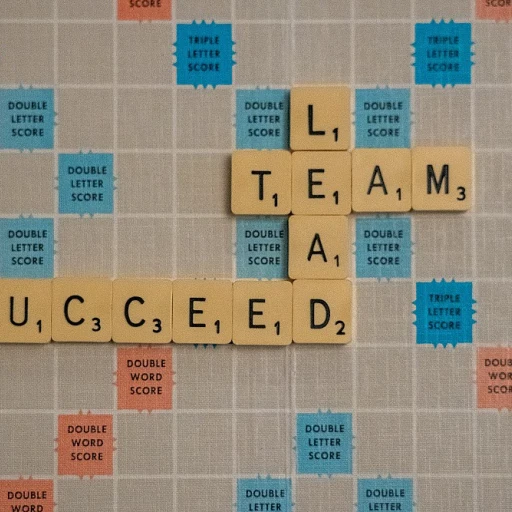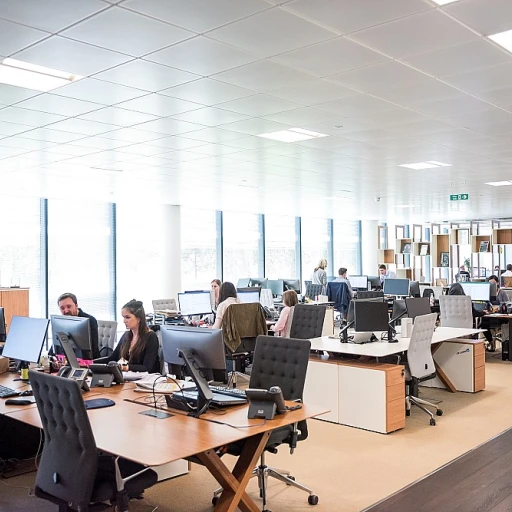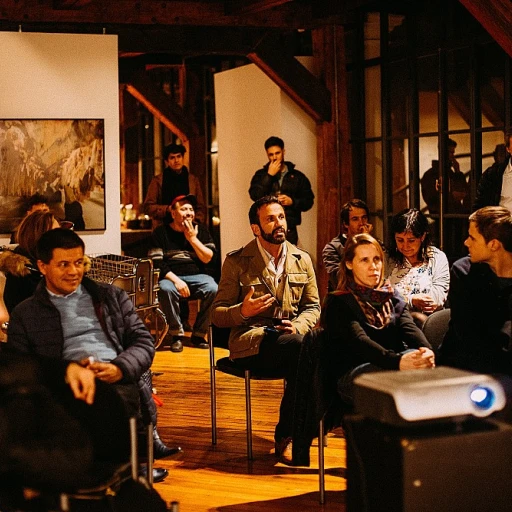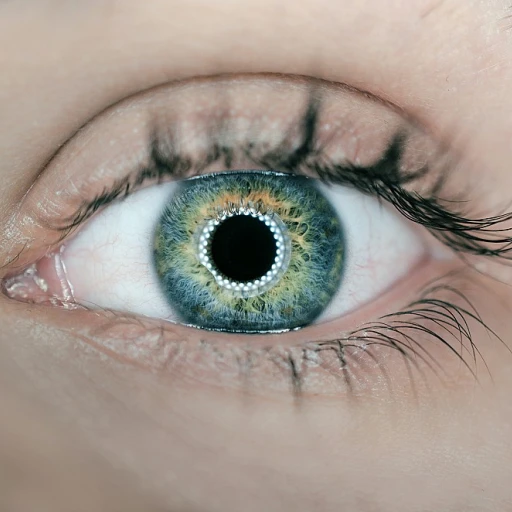
The Expanding Scope of IoT Development
The Expanding Horizon of IoT Development
The realm of IoT is perpetually evolving, bridging the digital and physical worlds through a vast network of interconnected devices. As IoT systems permeate various sectors, the scope of IoT development has witnessed a significant expansion. IoT developers are at the forefront of this technological revolution, driven by the increasing demand for smart solutions that integrate sensors, hardware, and cloud computing with seamless app development. The rapid proliferation of IoT devices has fueled the need for innovative development strategies to ensure efficient data collection and processing, device integration, and secure communication. IoT developers are tasked with creating IoT applications and software that harness data in real-time to provide actionable insights. This transformation not only enhances productivity but also paves the way for advancements in machine learning and artificial intelligence. In today's interconnected landscape, developers must consider security and privacy when designing IoT solutions, as the vast amount of data generated by IoT systems presents potential vulnerabilities. Therefore, robust security measures are critical to protecting both the infrastructure and sensitive information. The synergy between IoT and cloud platforms has unlocked new possibilities, enabling developers to manage and analyze massive datasets globally. This integration has spurred the development of sophisticated IoT solutions that cater to diverse industries, from healthcare to industrial automation. To stay ahead in this dynamic environment, aspiring IoT engineers must cultivate versatile skills and adapt to the latest trends in software development and embedded systems. Understanding the role quantum timekeeping plays in synchronizing IoT devices can further enhance one's marketability in the future of work landscape, as explored in this insightful blog post.Core Responsibilities of an IoT Developer
Core Responsibilities of IoT Experts
With the rise of the Internet of Things, the role of an IoT developer has expanded significantly. These professionals are essential in designing, developing, and maintaining the various IoT devices and software systems that connect to the internet, creating smart solutions for various applications.
Here's an insight into what their responsibilities include:
- Designing and implementing IoT applications: This involves developing software and hardware solutions directly interacting with IoT devices. IoT software developers often work on creating systems that can process large data sets collected from sensors and other inputs.
- System integration: Ensuring that different IoT components work seamlessly together is vital. IoT engineers are responsible for integrating a variety of devices and systems into a cohesive network that communicates efficiently, often utilizing cloud computing and real-time data processing.
- Ensuring security protocols: As IoT development leads to more devices being interconnected, ensuring robust security is crucial. IoT developers must implement security measures to protect sensitive data and prevent unauthorized access to systems.
- Collaboration with cross-functional teams: IoT projects often require collaboration with hardware engineers, data scientists, and other developers. IoT professionals need strong communication skills to effectively work in interdisciplinary teams.
- Continuous monitoring and improvement: IoT solutions should be adaptable to changing needs and technologies. Developers are tasked with continuously monitoring performance and implementing improvements or troubleshooting issues that may arise.
The role of an IoT developer is thus both dynamic and complex, involving a blend of software development, systems integration, data analysis, and cybersecurity expertise. If you're eager to explore more about the expanding scope and challenges faced in this field, consider diving into the advanced analysis of navigating the frontier of fintech initiatives in the future of work. IoT is just one piece of a larger puzzle in the evolving landscape of technology-driven solutions.
Skills and Tools Required for IoT Development
Essential Skills for IoT Development
In the rapidly evolving field of IoT development, possessing a diverse set of skills is crucial for any aspiring IoT developer. The integration of hardware and software systems requires a deep understanding of both domains. Here are some of the key skills and tools that are indispensable:
- Programming Languages: Proficiency in languages such as C, C++, Python, and Java is essential. These languages are commonly used in embedded systems and IoT applications to ensure efficient software development.
- Data Management: With IoT devices generating vast amounts of data, skills in data analytics and management are critical. Understanding how to process and analyze data in real time can significantly enhance the functionality of IoT solutions.
- Cloud Computing: Familiarity with cloud platforms like AWS, Azure, and Google Cloud is vital for managing and deploying IoT systems. These platforms offer scalable solutions for data storage and processing.
- Networking and Security: Knowledge of network protocols and security measures is crucial to protect IoT systems from potential threats. Ensuring the security of IoT devices and data is a top priority for developers.
- Machine Learning: As IoT devices become smarter, integrating machine learning algorithms can enhance their capabilities. Understanding machine learning concepts can lead to more intelligent IoT applications.
Tools and Technologies
IoT developers rely on a variety of tools to streamline the development process. These tools facilitate the creation of robust and efficient IoT systems:
- IoT Platforms: Platforms like ThingSpeak, IBM Watson IoT, and Microsoft Azure IoT provide comprehensive environments for developing and managing IoT applications.
- Sensors and Actuators: These are the building blocks of IoT devices, enabling them to interact with the physical world. Understanding how to integrate and utilize these components is fundamental.
- Development Boards: Boards such as Arduino and Raspberry Pi are popular among developers for prototyping and testing IoT solutions.
To excel in IoT development, developers must continuously update their skills and stay informed about the latest technological advancements. By harnessing technology to boost organizational performance, IoT developers can create innovative solutions that drive the future of work.
Challenges Faced by IoT Developers
Navigating Common Obstacles in IoT Development
The world of IoT development is vibrant, with immense opportunities to create smart innovations. However, this rapidly expanding domain is not without its challenges, which IoT developers frequently encounter in their quest to build effective IoT solutions. Developing a successful IoT application requires adept handling of diverse devices and systems. With a multitude of sensors and hardware configurations, ensuring seamless integration can be daunting. Furthermore, crafting IoT platforms that deliver real-time data efficiently demands precision in software and app development, employing robust programming languages suited for embedded systems. One of the most pressing issues IoT developers face is security. As the number of connected devices grows, so does the potential for vulnerabilities. Securing IoT systems against breaches is crucial, necessitating developers to stay updated with cutting-edge security protocols and solutions to protect sensitive information. In addition to security, managing data is a significant hurdle. IoT applications generate massive amounts of data, which must be processed and stored efficiently. Leveraging cloud computing becomes essential, as it provides scalable resources for handling data. However, integrating cloud systems with IoT platforms requires proficiency in cloud technologies and a keen understanding of data management strategies. Keeping pace with the evolving landscape of IoT, developers must also contend with rapid advancements in the field. Embracing new skills and staying informed about the latest developments in IoT solutions, machine learning, and internet technologies is vital. This commitment to continuous learning ensures that engineers and developers remain competitive and adept in implementing innovative IoT applications. In essence, while the IoT development landscape presents several challenges, addressing them with strategic solutions and ongoing learning can lead to remarkable breakthroughs and enhance the impact of IoT on the future of work.The Impact of IoT on the Future of Work
The Transformative Influence of IoT on Job Dynamics
The integration of IoT in work environments is poised to redefine job roles and responsibilities significantly. As IoT devices continue to proliferate, the demand for proficient iot developers and engineers who can design, implement, and maintain complex systems and solutions is rising. These professionals must work seamlessly with an array of hardware, such as sensors and embedded systems, as well as software applications, to create innovative solutions that leverage real-time data.
With the expanding landscape of IoT, developers are not only tasked with the technical challenges of programming and app development but also with addressing crucial issues such as security and data integrity. In scenarios where these smart systems are at the core of business operations, the role of an IoT engineer becomes essential in ensuring that the integration of these technologies enhances productivity and efficiency rather than hindering them.
The shift towards IoT also emphasizes the necessity for knowledge in cloud computing, as many iot applications heavily rely on cloud platforms for storage and processing capabilities. Consequently, professionals with skills in cloud integration and machine learning are sought after to transform the massive datasets generated by IoT systems into actionable insights.
For those exploring career pathways in IoT development, understanding how these technologies influence the future of work is crucial. The evolving job landscape will require adaptability and continuous learning to remain relevant in a world increasingly dominated by the internet of things.
Career Pathways and Opportunities in IoT
Exploring Career Pathways in IoT
The landscape of Internet of Things (IoT) development offers a plethora of exciting career opportunities for those interested in shaping the future of connected devices and systems. As industries increasingly rely on IoT solutions, the demand for skilled IoT developers and engineers continues to rise. In the realm of IoT, career pathways are diverse, driven by the broad scope and complexity of IoT systems. Developers often work on creating software and hardware that make smart devices function effectively. This encompasses everything from integrating sensors to developing cloud-based applications and ensuring robust security protocols. For those looking to enter the field, enhancing one's skills in programming languages, software development, and IoT integration is crucial. Understanding embedded systems, machine learning applications, and real-time data processing also plays a significant role in becoming an effective IoT developer. ### Opportunities in IoT Development- IoT Software Developer: Focused on creating applications and solutions that enable smart devices to interact seamlessly within IoT platforms.
- IoT Hardware Engineer: Specializes in designing the physical components essential for IoT devices, ensuring reliability and efficiency.
- Data Analyst (IoT): Leverages data collected from IoT sensors and systems to offer actionable insights for enhanced decision-making.













